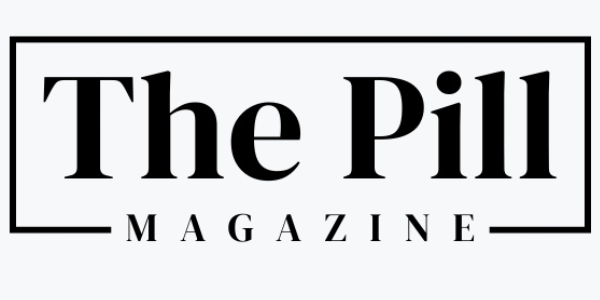Most people understand that managing significant wealth requires expertise. What many don’t realize is the intricate web of services, coordination, and strategic planning that ultra-high-net-worth families navigate daily. Behind every billionaire family lies a sophisticated infrastructure that would rival many Fortune 500 companies—and increasingly, technology platforms like MyFo are transforming how these complex operations function.
The challenge isn’t simply having money. The challenge is orchestrating dozens of professionals, managing multiple entities across jurisdictions, coordinating philanthropic initiatives, overseeing investments, and ensuring the next generation is prepared for their inheritance—all while maintaining privacy and family harmony.
This complexity has given rise to an entire industry dedicated to family office management, where traditional methods are rapidly giving way to digital solutions that promise greater transparency, efficiency, and control.
The Invisible Infrastructure of Wealth
Ultra-wealthy families don’t just hire a financial advisor and call it a day. They typically work with a constellation of specialists: investment managers, tax attorneys, estate planners, philanthropic advisors, family governance consultants, security specialists, property managers, and often a chief investment officer who coordinates the entire operation.
Consider the logistics alone. A typical ultra-high-net-worth family might maintain residences in three countries, hold investments across multiple asset classes and geographies, operate several business entities, run a private foundation, and coordinate education and career development for multiple family members across different generations.
Each professional relationship generates reports, recommendations, and data points. Investment managers provide quarterly updates. Tax advisors deliver annual strategies. Property managers send monthly maintenance reports. Philanthropic advisors track grant distributions and impact measurements.
The result? An information ecosystem so complex that many family offices employ dedicated staff just to aggregate and analyze the data flowing from various service providers.
Why Traditional Management Falls Short
For decades, family offices relied on quarterly meetings, email chains, and shared drives to coordinate their operations. Wealth managers would present thick binders of investment performance data. Tax advisors would email spreadsheets. Philanthropic advisors would send separate reports about foundation activities.
This fragmented approach creates several problems. First, family members often lack real-time visibility into their overall financial picture. An investment gain in one portfolio might be offset by losses elsewhere, but without integrated reporting, the net impact remains unclear until quarterly reviews.
Second, coordination between service providers becomes increasingly difficult as families grow more complex. The tax implications of an investment decision might not be communicated effectively to the estate planning attorney. The philanthropic advisor might not understand how foundation distributions affect overall liquidity planning.
Third, succession planning suffers when information lives in silos. Next-generation family members struggle to understand the full scope of family assets and obligations when data exists across dozens of different systems and relationships.
The Digital Revolution in Family Office Management
Technology platforms specifically designed for family office management are addressing these coordination challenges head-on. MyFo represents one example of how digital solutions are consolidating the traditionally fragmented world of ultra-high-net-worth family management.
These platforms typically offer centralized dashboards that aggregate information from multiple service providers. Instead of waiting for quarterly reports, family members can access real-time updates on investment performance, foundation activities, and estate planning progress from a single interface.
The benefits extend beyond mere convenience. Integrated platforms enable better decision-making by providing comprehensive views of family finances. They improve communication between service providers by creating shared access to relevant information. They enhance succession planning by giving next-generation family members transparent access to family financial education.
Perhaps most importantly, they shift control back to the family itself. Rather than relying entirely on external advisors to coordinate and interpret information, families gain direct oversight of their wealth management operations.
The Human Element Remains Critical
Technology platforms don’t replace the expertise of specialized advisors—they enhance collaboration between families and their professional teams. The most successful implementations combine digital infrastructure with continued access to top-tier legal, tax, investment, and philanthropic expertise.
The goal isn’t to eliminate human judgment but to ensure that human expertise operates with better information, improved coordination, and clearer family oversight. A sophisticated family office management platform should make advisors more effective, not less relevant.
Smart families are discovering that technology enables them to work with best-in-class specialists regardless of geography, since coordination no longer depends on everyone being in the same physical meetings. A tax advisor in New York can collaborate seamlessly with an investment manager in London and a philanthropic consultant in San Francisco.
Looking Forward: The Evolution of Wealth Management
The most significant shift happening in ultra-high-net-worth wealth management isn’t technological—it’s cultural. Families are demanding greater transparency, more direct control, and better integration across their various financial relationships.
MyFo and similar family office management platforms represent tools that enable this cultural shift. They provide families with the infrastructure needed to maintain oversight while still leveraging specialized expertise.
The next decade will likely see continued evolution toward more integrated, family-controlled approaches to wealth management. Families who embrace these changes early will benefit from better coordination, improved decision-making, and more effective succession planning.
Those who cling to traditional, fragmented approaches may find themselves at a disadvantage as the industry continues evolving toward greater transparency and integration.
Taking Control of Complex Wealth
MyFo provides ultra-high-net-worth families with a powerful platform to streamline wealth management by integrating information, coordinating relationships, and maintaining oversight across global operations. Managing significant wealth involves far more than financial transactions—it requires orchestrating dozens of moving parts with precision and clarity.
While technology offers solutions to these coordination challenges, success comes from selecting systems that complement, not replace, human expertise. The objective is to strengthen collaboration between families and their advisors, ensuring decisions are both informed and aligned with long-term goals.
Families that adopt an integrated approach through MyFo can transform fragmented processes into transparent, centralized, and family-controlled operations—positioning themselves for greater efficiency, security, and sustained success.






